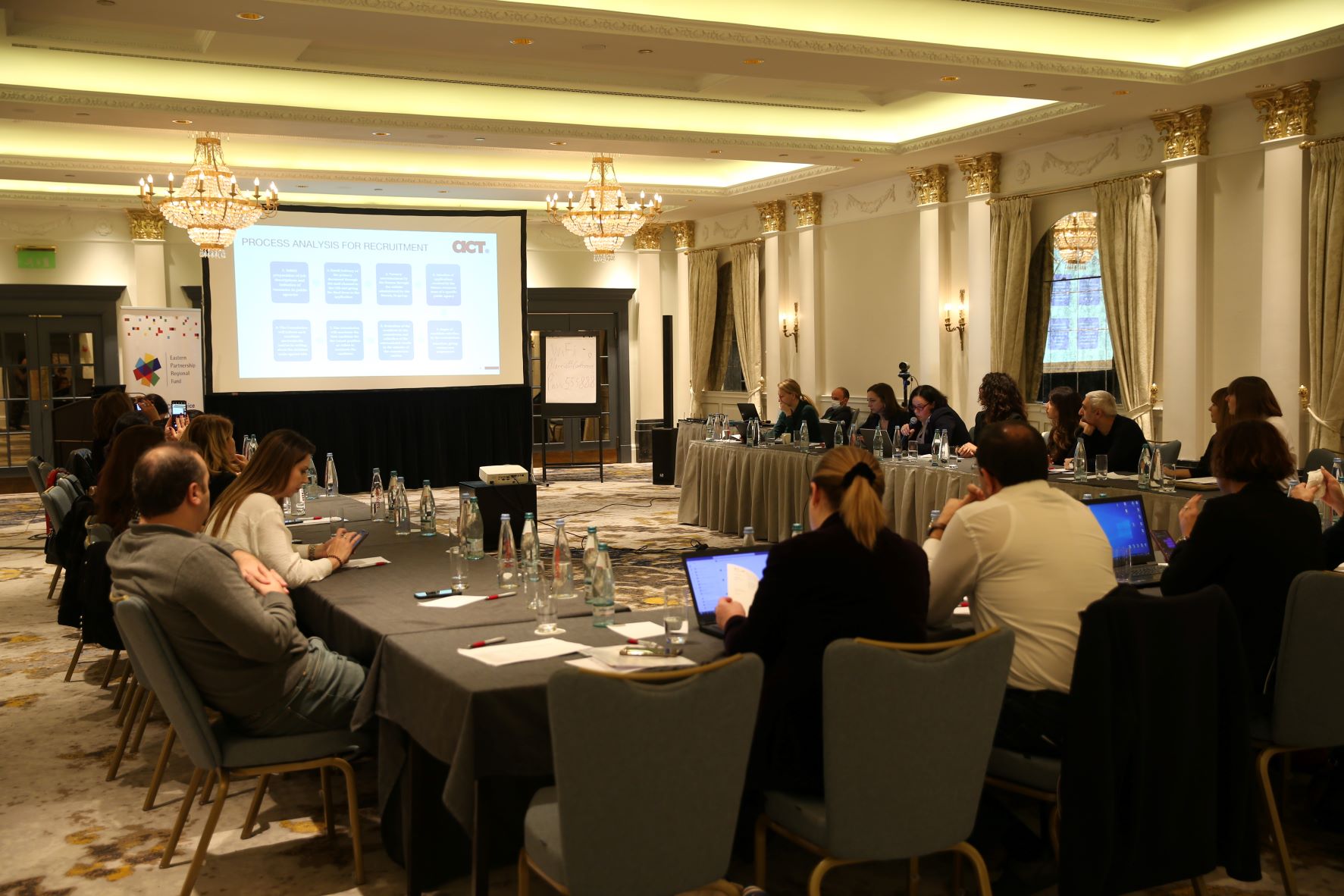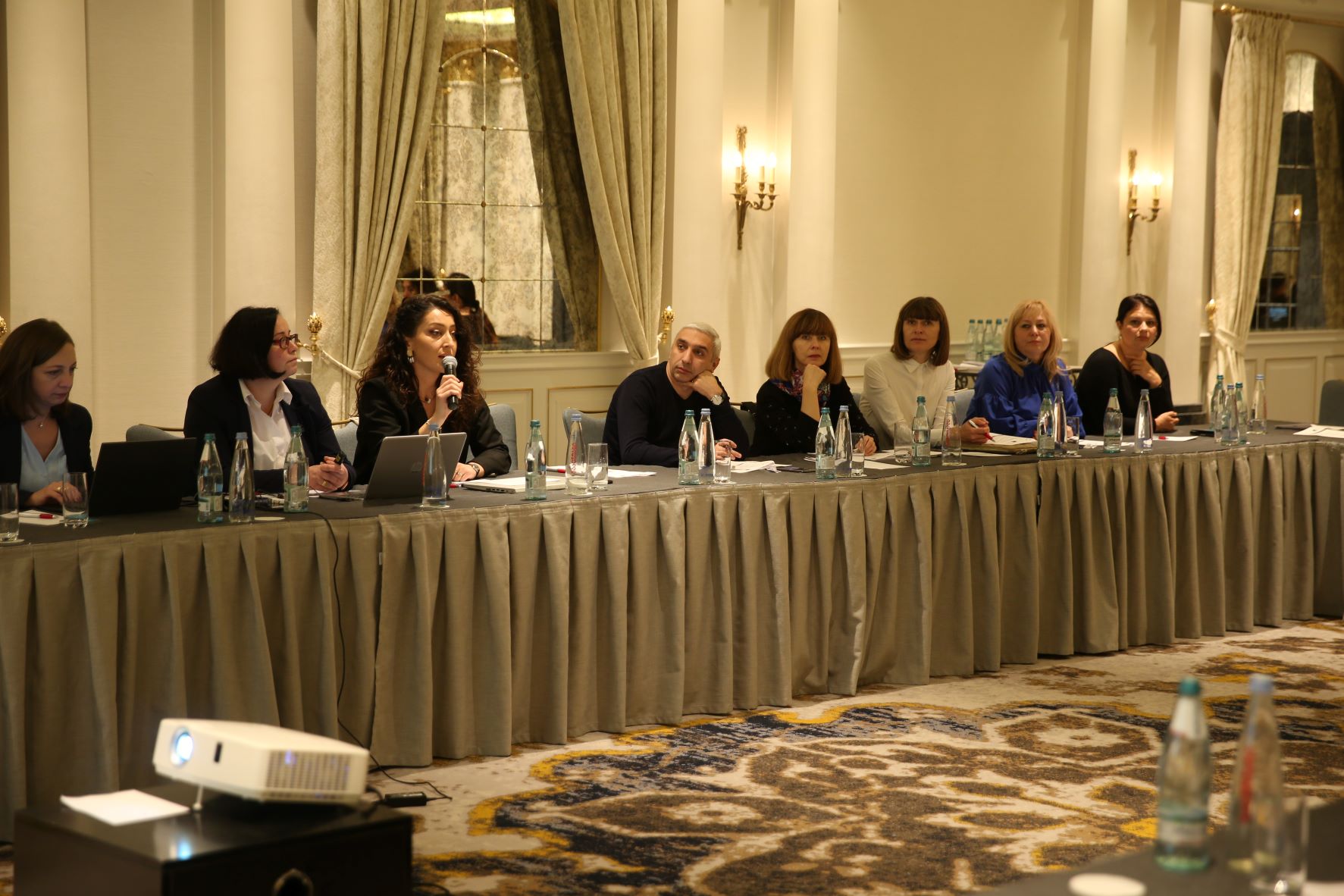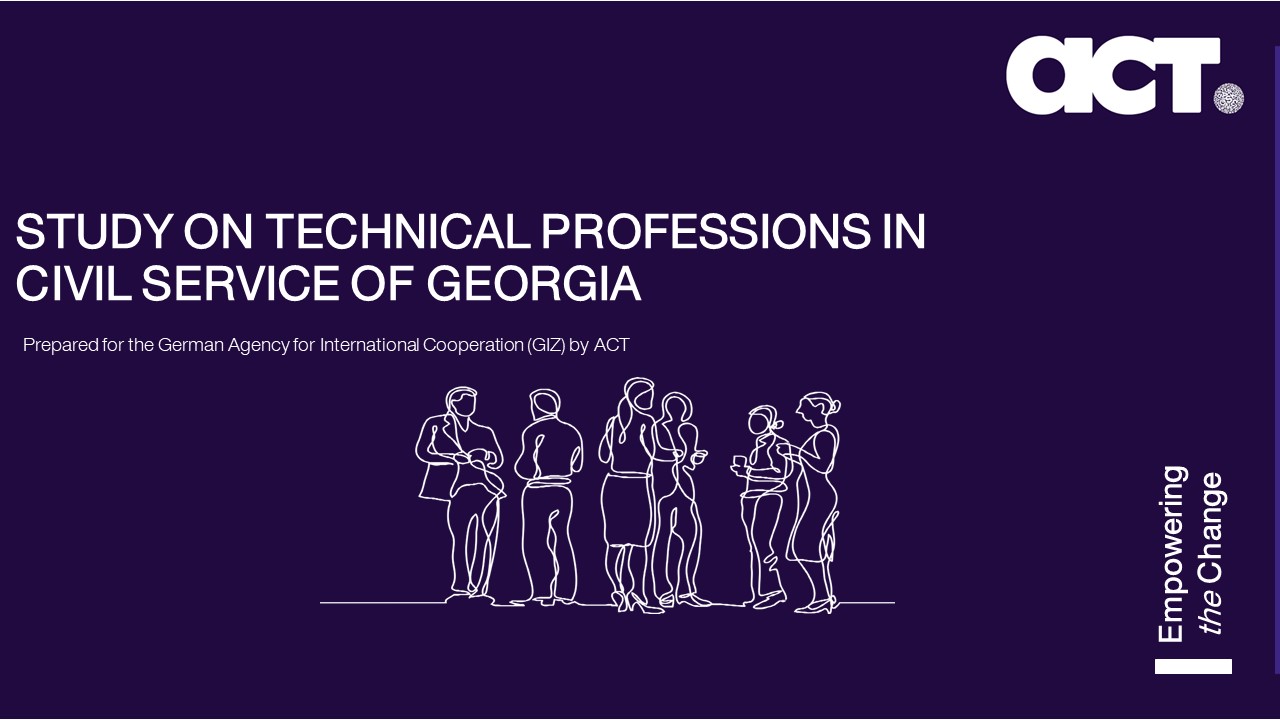On November 10, representatives of the research and management consulting company AСT presented a new study "Study of technical / non-academic professions in the civil service of Georgia." The study corresponds to the 2nd direction of the public administration reform roadmap and is an analysis of the transformation of classical professions into the administration or civil service of Georgia, as well as a study of the needs of technical/non-academic professions in the civil service in the near future.
 |
|
Stakeholders from technical and non-academic professions and representatives of partner countries got acquainted with the results and recommendations of the study in the field of human resource management in public administration in Georgia. The event is organized by the Regional Eastern Partnership Foundation and the German Society for International Cooperation (GIZ).
|
|
|
|
|
|
The study represents the first attempt to examine the technical and non-academic occupations and education levels of the civil service; To observe the transformation of professions from the classical ones as a result of the introduction of technologies, the development of services or the reform of public administration; How is the legislation of Georgia regulated in this direction; What are the qualification requirements for persons entering the civil service, and how are the prerequisites determined; How well developed are these approaches.
|
|
 |
The study is part of the project “Professional Civil Service and TVET in the EaP” and is planned to be replicated at the regional level.





